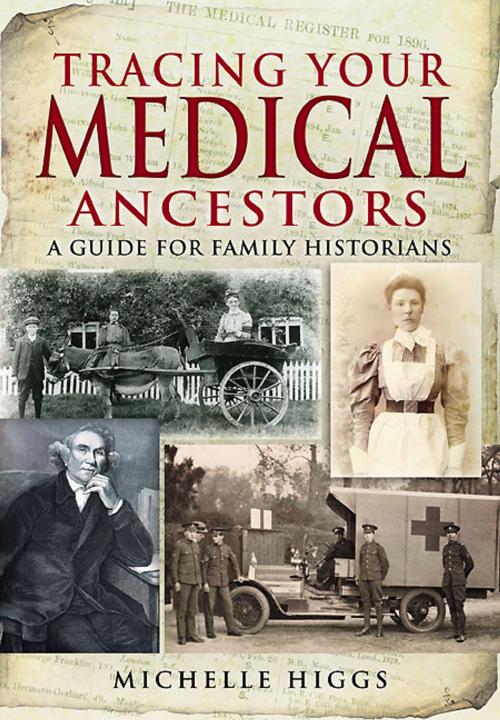Tracing Your Medical Ancestors
A Guide for Family Historians
Nonfiction, Reference & Language, Reference, Genealogy, History| Author: | Michelle Higgs | ISBN: | 9781844686629 |
| Publisher: | Pen and Sword | Publication: | July 12, 2011 |
| Imprint: | Pen and Sword | Language: | English |
| Author: | Michelle Higgs |
| ISBN: | 9781844686629 |
| Publisher: | Pen and Sword |
| Publication: | July 12, 2011 |
| Imprint: | Pen and Sword |
| Language: | English |
The medical profession had as much influence on the lives of our ancestors as it does on our lives today. It occupied an extraordinary range of individuals - surgeons, doctors, nurses and specialists of all kinds. Yet, despite burgeoning interest in all aspects of history and ancestry, medicine has rarely been considered from the point of view of a family historian. This is the main purpose of Michelle Higgs’s accessible and authoritative introduction to the subject.
Assuming the reader has little prior knowledge of how or where to look for such information, she traces the development of medical practice and patient care. She describes how attitudes to illnesses and disease have changed over time. In particular, she looks at the parts played in the system by doctors and nurses - at their role, training and places of work and she also looks at the patients and their experience of medicine in their day.'
Each section identifies the archives and records that the family historian can turn to, and discusses other potential sources including the Internet. The book is an invaluable guide to all the information that can give an insight into the experience of an ancestor who worked in medicine or had a medical history.
The medical profession had as much influence on the lives of our ancestors as it does on our lives today. It occupied an extraordinary range of individuals - surgeons, doctors, nurses and specialists of all kinds. Yet, despite burgeoning interest in all aspects of history and ancestry, medicine has rarely been considered from the point of view of a family historian. This is the main purpose of Michelle Higgs’s accessible and authoritative introduction to the subject.
Assuming the reader has little prior knowledge of how or where to look for such information, she traces the development of medical practice and patient care. She describes how attitudes to illnesses and disease have changed over time. In particular, she looks at the parts played in the system by doctors and nurses - at their role, training and places of work and she also looks at the patients and their experience of medicine in their day.'
Each section identifies the archives and records that the family historian can turn to, and discusses other potential sources including the Internet. The book is an invaluable guide to all the information that can give an insight into the experience of an ancestor who worked in medicine or had a medical history.















